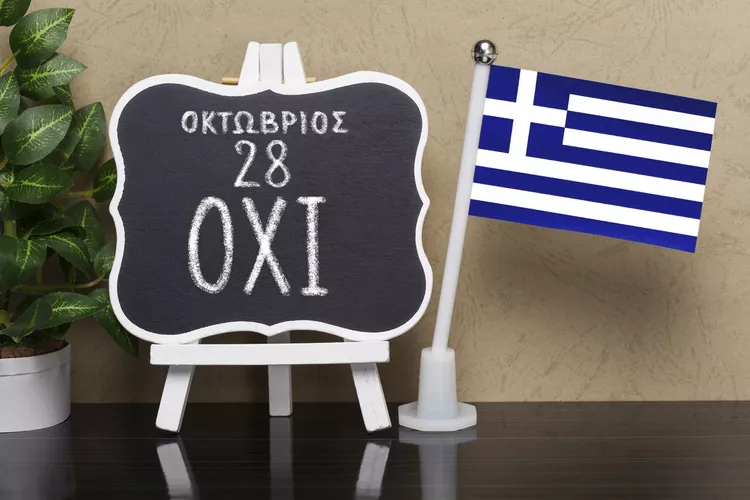Are you traveling in Greece or Cyprus during October? If so, on Oct. 28, expect to encounter parades and other celebrations commemorating Ochi Day, which is the anniversary of General Ioannis Metaxas’ flat denial to the Italians’ request for free passage to invade Greece.
History and Origins
In October 1940, Italy, backed by Adolf Hitler, sought to occupy Greece. Metaxas simply responded, “Ochi!” This translates to “no” in Greek. This resolute response brought Greece into the war on the allied side. At that time, Greece stood as Britain’s only ally against Hitler.
Greece did not merely refuse to allow Benito Mussolini’s forces free passage; it aggressively countered the invaders, driving them back through most of Albania.
Some historians argue that the fierce resistance displayed by the Greeks against the German paratrooper landings during the Battle of Crete convinced Hitler that such aerial assaults would incur unacceptable losses for Germany. The airborne invasion of Crete marked the last attempt by the Nazis to employ this strategy effectively, as the resources required to subdue Greece diverted focus from other critical fronts.
If Metaxas had not uttered the word “no,” the duration of World War II could have been significantly extended. A prevailing theory posits that had Greece capitulated without resistance, Hitler would have successfully invaded Russia in the spring instead of making his ill-fated attempt during winter. Consequently, modern Greece may deserve recognition for its role in preserving democracy against tyranny during World War II, akin to the ancient contributions of Greece to the development of democratic ideals.
Did Metaxas really deliver such a succinct reply? Probably not, but that is how the story has been relayed through generations. It’s also worth noting that he likely responded in French rather than Greek.
Travel During the Holiday
On Ochi Day, major cities in Greece host military parades, while various Greek Orthodox churches conduct special services. Coastal towns may also feature naval parades or other celebrations along the waterfront.
Thessaloniki showcases a threefold celebration, honoring its patron saint, Saint Demetrios, celebrating liberation from Turkish rule, and commemorating Greece’s entry into World War II.
In recent years, heightened anti-American and anti-war sentiments have intensified the already vibrant Greek political climate. As a result, Ochi Day may be celebrated with increased vigor and accompanied by political themes. Nevertheless, any protests, vocal or visual, are unlikely to escalate beyond mere inconveniences.
Prepare for potential traffic delays, particularly near parade routes, and expect some streets to be blocked for various events and festivities.
Enjoy the parades, but keep in mind that most archaeological sites will be closed, along with numerous businesses and services. In instances when Ochi Day coincides with a Sunday, additional closures will occur.
Alternate spellings: Ochi Day is also spelled Ohi Day or Oxi Day.




